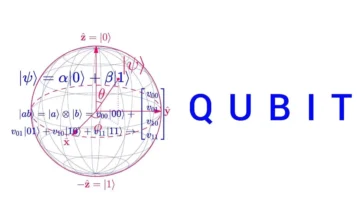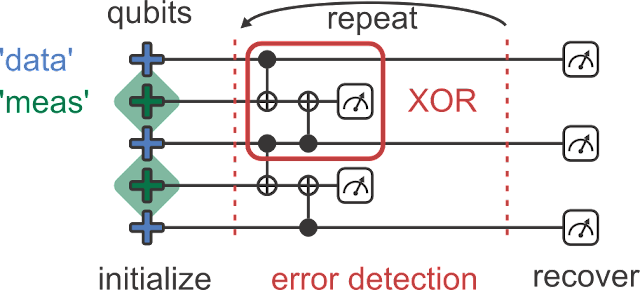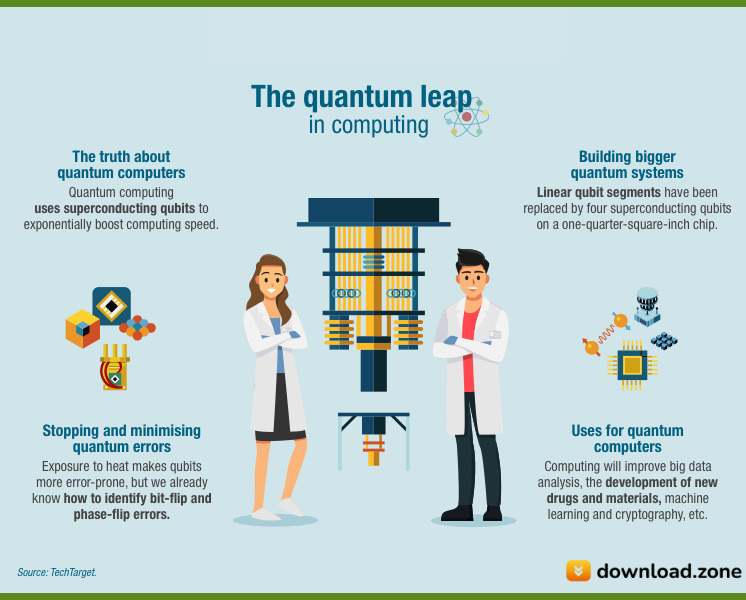Rise of Quantum Computing And Future of Technology
The advent of classical computing heralded a new age in human computation, with traditional computers becoming the primary tool for information processing. However, as technology improved, it became clear that classical computers were limited by classical physics and binary logic. Despite their toughness and versatility, they had limitations in what they could accomplish. But, against this backdrop, a quiet revolution was forming: the rise of quantum computing. Quantum computing has emerged as a game-changing discovery in the ever-changing technological scene, attracting the attention of scientists, researchers, and technology enthusiasts all over the world.
With its unmatched processing capacity and ability to solve previously unsolvable issues, quantum computing has the potential to radically alter the future of technology. This blog will take you on a fascinating journey into the fascinating world of quantum computing, where we will delve into its roots, study its principles, and uncover its disruptive potential across numerous industries.
ad
Let us embark together on an examination into the advent of quantum computing and the potential it offers for the future of technology.
What is quantum computing?
Quantum computing is a revolutionary field of computing that harnesses the principles of quantum mechanics to process information. Unlike classical computers that rely on bits to represent and manipulate data, quantum computers use quantum bits, or qubits, which can exist in multiple states simultaneously. This unique property enables quantum computers to perform complex calculations at an exponentially higher speed and tackle problems that are computationally infeasible for classical systems. In essence, quantum computing holds the potential to revolutionize various industries by solving problems with unprecedented speed and efficiency.
ad
Major components of quantum computing
Several critical components work together to accomplish quantum computations in quantum computing:
 Qubits: Quantum bits, also known as qubits, are the basic building elements of quantum computers. Unlike classical bits, which can only represent a 0 or a 1, qubits can exist in superposition, signifying both a 0 and a 1. Because quantum computers can exist in numerous states, they can do parallel computations.
Qubits: Quantum bits, also known as qubits, are the basic building elements of quantum computers. Unlike classical bits, which can only represent a 0 or a 1, qubits can exist in superposition, signifying both a 0 and a 1. Because quantum computers can exist in numerous states, they can do parallel computations.
Quantum gates: Quantum gates are the quantum analogue of conventional logic gates. They modify the quantum state of qubits, allowing them to perform operations like superposition, entanglement, and quantum interference. To perform quantum calculations and changes on qubits, quantum gates are used.
Quantum Circuits: A quantum circuit is a series of quantum gates used to execute specific computations on qubits. They define the flow of quantum information and allow quantum algorithms to be executed. In digital electronics, quantum circuits are comparable to classical circuits.
Quantum registers: These are collections of qubits that are used to store and process quantum information. They allow you to group qubits together and conduct operations on numerous qubits at the same time.
Measurement: It is an important operation in quantum computing that converts the quantum state of qubits into classical bits. It enables the extraction of a computation’s result and delivers the output of a quantum algorithm.

Quantum Error Correction: A critical component of quantum computing systems is quantum error correction. It entails strategies and protocols for detecting and correcting mistakes caused by noise, decoherence, and other disturbances. Quantum error correction aids in the preservation of quantum information and increases the dependability of quantum calculations.
These components work together to manipulate and process quantum information, utilizing quantum mechanics principles to conduct computations that have the potential to exceed the capabilities of classical computers.
Working of quantum computing
Quantum computing processes information by utilizing quantum mechanics principles. Unlike classical computers, which employ bits that can have a value of 0 or 1, quantum computers use qubits. Qubits can exist in a state of superposition, representing both 0 and 1 at the same time. This enables quantum computers to calculate several possible outcomes at the same time, resulting in exponential computing speed and power.
Furthermore, qubits can be entangled, which means that the state of one qubit can be reliant on the state of another, regardless of their distance. Because of this characteristic, quantum computers are able to do complicated parallel computations and solve certain problems more effectively than classical computers.
Quantum computing is based on a variety of techniques and technologies, including manipulating and measuring qubits, maintaining their quantum states, and limiting interference from outside sources. These technical hurdles are being addressed by field researchers and scientists, pushing the boundaries of quantum computing and paving the road for its eventual practical applications.
It’s vital to remember that quantum computing is still in its early stages, with numerous technological and engineering challenges to solve before fully scalable and fault-tolerant quantum computers can be realized. Nonetheless, the promise of quantum computing to transform compute and solve complicated issues has piqued the interest and investment of academic institutions, government organizations, and industrial leaders all over the world.
Read more:
- What is machine learning
- Artificial Intelligence: What is it and how evolving?
- All about Virtual Reality (VR)
- Peering into the Future: Quantum AI’s Role in Financial Predictions
What sets quantum computing apart from classical computing?
Unlike classical computing, which uses binary digits (bits) representing either 0 or 1, quantum computing operates on quantum bits, or qubits. Information processing in traditional and quantum computing differs significantly. By utilizing qubits instead of bits, quantum computers handle information in a fundamentally different manner, enabling faster computations and solving problems beyond the reach of classical computers.
It is important to note that quantum computers are not universally superior to conventional computers in all tasks; they are simply different. However, this difference can be harnessed to achieve remarkable feats.
So, how will quantum computing change the world?
Quantum computing is a new field with enormous promise for revolutionizing many industries and scientific disciplines. While its full potential may not yet be achieved due to persistent technological obstacles, recent developments and the rapid speed of research have propelled quantum computing to the forefront of technology. Quantum computing has the potential to revolutionize fields such as artificial intelligence, drug discovery, optimization, cryptography, finance, materials science, climate modeling, supply chain management, and others by allowing it to perform calculations at unprecedented speeds and tackle complex problems that were previously thought unsolvable. The world awaits the breakthroughs and transformational influence that quantum computing will bring to the future of technology as academics and scientists continue to study and utilize its powers.
Let’s explore some examples of how quantum computing could transform the world, with artificial intelligence (AI) being just one of them:
- Drug Discovery: Quantum computers can model complex chemical interactions, potentially accelerating and enhancing the process of drug development.
- Financial Modeling and Risk Analysis: Quantum computing can optimize the simulation and analysis of financial portfolios, option pricing, and risk management.
- Weather Forecasting and Climate Modeling: Quantum computers could simulate Earth’s climate and improve the precision of weather predictions, aiding in climate research and analysis.
- Traffic Optimization: Quantum computing can contribute to better traffic flow and reduced congestion in cities, optimizing transportation networks.
- Energy Optimization: Quantum computing has the potential to optimize renewable energy sources, enhance energy efficiency, and address energy-related challenges.
- Supply Chain Optimization: Quantum computing can optimize supply chain logistics, facilitating faster and more efficient delivery and customer service.
- Materials Science: Quantum computers enable the design of novel materials with specific properties, transforming areas such as electronics, energy storage, and more.
- Quantum Communication and Security: By exploiting quantum mechanics principles, quantum communication protocols such as quantum key distribution provide better security and anonymity in data transfer.
- Machine Learning: Quantum computers can handle optimization problems more effectively, which has applications in industries such as supply chain management, logistics, financial portfolio optimization, and machine learning model training.
- Cryptography: Quantum computers have the potential to break current encryption methods, spurring the need for new cryptographic algorithms and security measures.
- Artificial Intelligence: Quantum computing can boost machine learning algorithms, leading to more advanced AI capabilities, such as improved learning, reasoning, and understanding.
- Big Data Analysis: Quantum computers can analyze large datasets, revealing hidden patterns and insights, unlocking new possibilities in data-driven fields.
Other areas of development
Quantum computing is a rapidly developing sector of technology that has the potential to transform many industries. Beyond the areas mentioned previously, such as AI, drug development, and finance, quantum computing is expected to impact additional sectors in the next years, including manufacturing, cybersecurity, energy, agriculture, and others.
In the field of space research, quantum computing has the potential to be critical in processing massive volumes of data collected from space-based instruments. This capability would allow for more exact cosmic mapping, allowing for the discovery of new celestial entities and improving our understanding of the cosmos.
Quantum computing has the potential to improve security measures in the field of cybersecurity. It can help to build unbreakable encryption methods, detect and prevent cyberattacks, and preserve sensitive data, ensuring a greater level of security in an increasingly linked digital world.
What are some challenges in quantum computing?
While quantum computing has enormous potential, there are significant limitations and obstacles that must be addressed:
Fragility: Quantum bits, or qubits, are susceptible to noise and external perturbations. Maintaining the delicate quantum states required for computation is difficult, as even tiny interactions with the environment can result in mistakes or decoherence.
Error Correction: Because of issues like as noise, faulty gates, and decoherence, quantum systems are prone to errors. Creating effective error correction algorithms capable of consistently preserving and protecting quantum information is a difficult undertaking.
Cost and accessibility: Quantum computing technologies are still in their infancy, necessitating sophisticated infrastructure and expertise. The expense of creating and maintaining quantum computers is too expensive, preventing many academics and companies from participating.
Scalability: Creating large-scale quantum computers with enough qubits remains a big hurdle. Currently, quantum computers have a limited number of qubits, making complicated computations or tackling real-world problems that require a high number of qubits impossible.
Quantum Algorithms: Developing quantum algorithms that outperform classical algorithms in a wide range of applications is still a work in progress. While some quantum algorithms have demonstrated advantages in specific tasks such as large number factoring, many practical applications have yet to be extensively studied and tuned.
Despite these obstacles, ongoing research and advances in quantum computing hold hope for circumventing these constraints. With continuing advancement, quantum computing has the potential to change a wide range of disciplines by addressing challenging issues that are beyond the capacity of traditional computers.
Conclusion
The field of quantum computing is growing rapidly, with advancements expected in medicine, finance, climate research, cybersecurity, space exploration, manufacturing, agriculture, energy, big data analysis, traffic and supply chain optimization, materials science, and artificial intelligence.
The future is brimming with possibilities as quantum computing reshapes our understanding of information processing. Brace yourself for a world where seemingly unsolvable problems find solutions, and where progress takes unprecedented leaps. Quantum computing is set to revolutionize our world in ways we are only beginning to comprehend.
ad



Comments are closed.